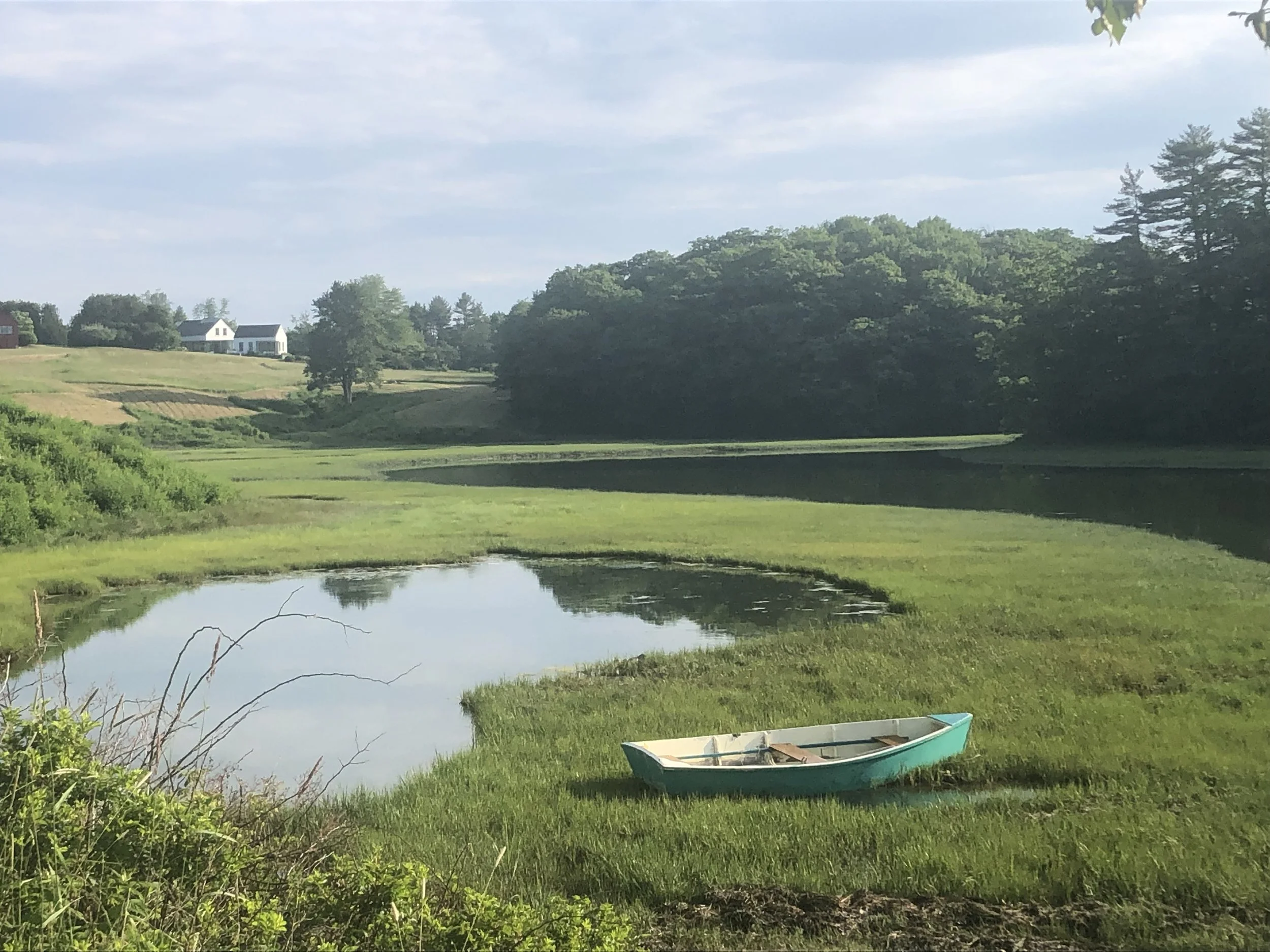Wetlands: Nature’s Water Filter
Most coastal carbon is stored in the soil and peat layers. Beyond carbon storage, wetlands, like the one you see here, act as a natural water filter – purifying water by trapping pollutants, retaining sediments, and cycling excess nitrogen and phosphorus as it flows through the ecosystem. Wetlands also offer added ecosystem benefits – they serve as a productive habitat for many species as well as a nurturing nursery for raising young.
Peat is spongy, partially decomposed plant matter that accumulates in this low-oxygen environment. Decomposition of organic plant material is much slower when there is no oxygen present, so the carbon stays intact. This soil peat and its carbon can be thousands of years old.
Current studies show that coastal wetlands play a major role in storing carbon, storing more carbon than all the world’s forests.
Our work at Wolfe’s Neck Center
Here at Wolfe’s Neck Center, our continued dedication to sustainable and environmentally sound farming practices means improving soil health to increase infiltration of rainfall into the soil and minimize runoff, as well as not using synthetic fertilizers or pesticides to ensure the protection of these wetlands.
By not using liquid manure to fertilize fields bordering the estuary and by leaving a healthy buffer zone of non-grazed fields around wetlands, we manage our nitrogen runoff and protect this fragile estuary ecosystem. Closely observing where wet areas occur on the property and intentionally leaving those areas ungrazed keeps nutrients in our fields and not in our waterways.
Additionally, the entire farm and campground are protected in perpetuity through the initial gift of land given by the Smith family, now held in conservation easements through the American Farmland Trust and the Maine Department of Agriculture, Conservation and Forestry.
Watch this video about American Farmland Trust and Wolfe’s Neck Center











